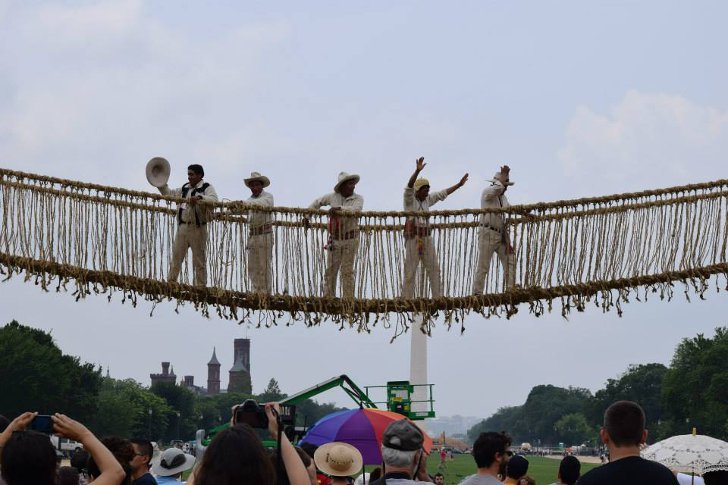The Smithsonian Institution is a group of museums and research centers established by the U.S. Congress and administered by the Government of the United States. Its museums and research centers contain an eclectic collection of 154 million items, which has earned it its nickname of “national attic”. The Center for Folklife & Cultural heritage is one of the three cultural centers within the institution, responsible for encouraging cultural sustainability through research, education, and community engagement.
The Smithsonian Folklife Festival is one of the Center’s flagship projects. It was launched in 1967 and has since become a national and international model of a research-based presentation of contemporary living cultural traditions. The festival is held for two weeks in late June and early July, always including the Fourth of July (the United States Independence Day).
One of the main goals of the Smithsonian Folklife Festival is to encourage cultural exchange, so all his expositions and events are free to the public. The event is produced outdoors of the National Mall. It draws over one million visitors every year, which makes it the largest annual cultural event in Washington, D.C. and one of the nation’s major cultural celebrations.
The festival program is usually divided into sections, each focusing on a theme, state, region or nation. Since the inception of the Smithsonian Folklife Festival, it has showcased the cultures of more than 90 nations, every region of the United States, and over 100 American Indian groups. The festival’s rich and diverse program includes traditional music, song, dance, arts & crafts, cooking demonstrations, narrative sessions, storytelling, workshops, discussions of important cultural issues, and more.
Over the years, featured countries and regions at the Smithsonian Folklife Festival have included Armenia, Basque Country, Bhutan, Catalonia, Cape Verde, China, Colombia, Haiti, Hungary, Japan, Kenya, Korea, Peru, Russia, Senegal, Tibet, and many others. This cultural diversity perfectly illustrates the main idea behind the festival: strengthening and preserving national traditions and raising awareness about the importance of understanding and respecting cultural cultural similarities and differences.
In 2020, the event was held online due to the coronavirus pandemic.

Photo: Victoria Gunawan




